|
Books Should Be Free Loyal Books Free Public Domain Audiobooks & eBook Downloads |
|
|
Books Should Be Free Loyal Books Free Public Domain Audiobooks & eBook Downloads |
|
Books on Languages |
|---|
|
Book type:
Sort by:
View by:
|
By: Jessie Duncan [Translator] Westbrook | |
|---|---|
 Hindustani Lyrics
Hindustani Lyrics
| |
By: Johan Huizinga (1872-1945) | |
|---|---|
 Erasmus and the Age of Reformation
Erasmus and the Age of Reformation
| |
By: Johann Amos Comenius (1592-1670) | |
|---|---|
 The Orbis Pictus
The Orbis Pictus
| |
By: John Addington Symonds (1840-1893) | |
|---|---|
 Wine, Women, and Song Mediaeval Latin Students' songs; Now first translated into English verse
Wine, Women, and Song Mediaeval Latin Students' songs; Now first translated into English verse
| |
By: John Andrew (1815-1875) | |
|---|---|
 The Fireside Picture Alphabet or Humour and Droll Moral Tales; or Words & their Meanings Illustrated
The Fireside Picture Alphabet or Humour and Droll Moral Tales; or Words & their Meanings Illustrated
| |
By: John Hendricks Bechtel (1841-) | |
|---|---|
 Slips of Speech : a Helpful Book for Everyone Who Aspires to Correct the Everyday Errors of Speaking
Slips of Speech : a Helpful Book for Everyone Who Aspires to Correct the Everyday Errors of Speaking
| |
By: John McLean (1799-1890) | |
|---|---|
 Notes of a Twenty-Five Years' Service in the Hudson's Bay Territory Volume II.
Notes of a Twenty-Five Years' Service in the Hudson's Bay Territory Volume II.
| |
 Notes of a Twenty-Five Years' Service in the Hudson's Bay Territory Volume I.
Notes of a Twenty-Five Years' Service in the Hudson's Bay Territory Volume I.
| |
By: John Ogilvie (1732-1813) | |
|---|---|
 An Essay on the Lyric Poetry of the Ancients
An Essay on the Lyric Poetry of the Ancients
| |
By: John Payne (1842-1916) | |
|---|---|
 Tales from the Arabic
Tales from the Arabic
| |
 Alaeddin and the Enchanted Lamp
Alaeddin and the Enchanted Lamp
| |
By: John Sargeaunt (1857-1922) | |
|---|---|
 Society for Pure English Tract 4 The Pronunciation of English Words Derived from the Latin
Society for Pure English Tract 4 The Pronunciation of English Words Derived from the Latin
| |
By: John Stephen Farmer (1845?-1915?) | |
|---|---|
 Musa Pedestris - Three Centuries of Canting Songs and Slang Rhymes [1536 - 1896]
Musa Pedestris - Three Centuries of Canting Songs and Slang Rhymes [1536 - 1896]
| |
By: John Summerfield | |
|---|---|
 Sketch of Grammar of the Chippeway Languages To Which is Added a Vocabulary of some of the Most Common Words
Sketch of Grammar of the Chippeway Languages To Which is Added a Vocabulary of some of the Most Common Words
| |
By: John Wilson Ross (1818-1887) | |
|---|---|
 Tacitus and Bracciolini The Annals Forged in the XVth Century
Tacitus and Bracciolini The Annals Forged in the XVth Century
| |
By: Joseph Devlin | |
|---|---|
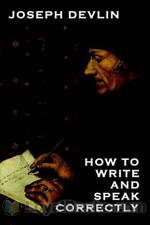 How to Speak and Write Correctly
How to Speak and Write Correctly
A book on improving eloquence, proficiency and grammar in everyday communication. ‘How to Speak and Write Correctly’ is not a manual of the styles to use in speaking and writing, nor is it a manual for grammar. It is a simple, useful book for helping ordinary people in effective communication. It lays down and explains broad rules of communication, further giving useful tips for effective communication. The book also lists common mistakes in communication and offers suggestions on how best to avoid them... | |
By: Joseph Dunn (1872-) | |
|---|---|
 The Ancient Irish Epic Tale Táin Bó Cúalnge
The Ancient Irish Epic Tale Táin Bó Cúalnge
| |
By: Joseph O'Brien | |
|---|---|
 The Devil A Tragedy of the Heart and Conscience
The Devil A Tragedy of the Heart and Conscience
| |
By: Joseph Wright (1855-1930) | |
|---|---|
 A Middle High German Primer Third Edition
A Middle High German Primer Third Edition
| |
By: Julius Caesar (100 BC - 44 BC) | |
|---|---|
 "De Bello Gallico" and Other Commentaries
"De Bello Gallico" and Other Commentaries
| |
By: Kabir (1440-1518) | |
|---|---|
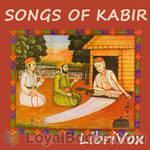 Songs of Kabir
Songs of Kabir
Kabir (1440 - 1518) was a mystic poet and saint of India, whose writings have greatly influenced the Bhakti movement.The name Kabir comes from Arabic Al-Kabir which means 'The Great' - the 37th Name of God in the Qur'an.Kabir was influenced by the prevailing religious mood of his times, such as old Brahmanic Hinduism, Hindu and Buddhist Tantrism, the teachings of Nath yogis and the personal devotionalism of South India mixed with the imageless God of Islam. The influence of these various doctrines is clearly evident in Kabir's verses... | |
By: Kagemna | |
|---|---|
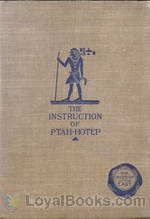 The Instruction of Ptah-Hotep and the Instruction of Ke'Gemni The Oldest Books in the World
The Instruction of Ptah-Hotep and the Instruction of Ke'Gemni The Oldest Books in the World
| |
By: Kalidasa | |
|---|---|
 Translations of Shakuntala and Other Works
Translations of Shakuntala and Other Works
| |
 Sakoontala or the Lost Ring An Indian Drama
Sakoontala or the Lost Ring An Indian Drama
| |
By: Katherine Chandler | |
|---|---|
 The Bird-Woman of the Lewis and Clark Expedition
The Bird-Woman of the Lewis and Clark Expedition
| |
By: Kostes Palamas (1859-1943) | |
|---|---|
 Life Immovable First Part
Life Immovable First Part
| |
By: L. (Launcelot) Cranmer-Byng (1872-1945) | |
|---|---|
 A Lute of Jade : selections from the classical poets of China
A Lute of Jade : selections from the classical poets of China
| |
By: Lady Gregory (1852-1932) | |
|---|---|
 The Kiltartan Poetry Book; prose translations from the Irish
The Kiltartan Poetry Book; prose translations from the Irish
| |
By: Lafcadio Hearn (1850-1904) | |
|---|---|
 Kwaidan: Stories and Studies of Strange Things
Kwaidan: Stories and Studies of Strange Things
Most of the following Kwaidan, or Weird Tales, have been taken from old Japanese books,— such as the Yaso-Kidan, Bukkyo-Hyakkwa-Zensho, Kokon-Chomonshu, Tama-Sudare, and Hyaku-Monogatari. Some of the stories may have had a Chinese origin: the very remarkable "Dream of Akinosuke," for example, is certainly from a Chinese source. But the story-teller, in every case, has so recolored and reshaped his borrowing as to naturalize it… One queer tale, "Yuki-Onna," was told me by a farmer of Chofu, Nishitama-gori, in Musashi province, as a legend of his native village... | |
By: Lawrence Echard (1670?-1730) | |
|---|---|
 Prefaces to Terence's Comedies and Plautus's Comedies (1694)
Prefaces to Terence's Comedies and Plautus's Comedies (1694)
| |
By: Leo Tolstoy (1828-1910) | |
|---|---|
 War and Peace
War and Peace
Leo Tolstoy's War and Peace chronicles the lives of five Russian aristocratic families during Napoleon's invasion of Russia. Many considered this book to be the best Russian work of literature of all time and it is massive in scale. The book is divided in four volumes and the chapters don't just contain the narrative of the plot to the novel but philosophical discussions as well. This may be intimidating to average book readers but they shouldn't be discouraged to try reading War and Peace. After all, this book was written for all and not just for intellectuals... | |
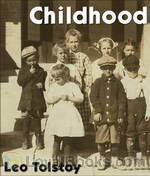 Childhood (English trans.)
Childhood (English trans.)
Childhood, published in 1852, is the first novel in Leo Tolstoy’s autobiographical trilogy, which also includes Boyhood, and Youth. Published when Tolstoy was twenty-three, the book gained immediate notice among Russian writers including Ivan Turgenev, and heralded the young Tolstoy as a major figure in Russian letters. Childhood is an expressionist exploration of the internal life of a young boy, Nikolenka, and was a new form in Russian writing, mixing fact, fiction and emotions to render the moods and reactions of the narrator. Childhood is Tolstoy’s first published work. Translated into English by C. J. Hogarth. | |
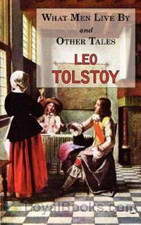 What Men Live By and Other Tales
What Men Live By and Other Tales
Although Leo Tolstoy (1828-1910) was a wealthy landowner, in his later life he had what was considered a “religious awakening.” This experience went on to inform his writing and his lifestyle in profound ways. His views transcended the specifics of religion, as known in his day – so much so he came to be a helpful guide both to Mohandas Gandhi and to Dr. Martin Luther King Jr. The four stories in this collection ask profound questions and gently supply helpful, non-dogmatic hints to their... | |
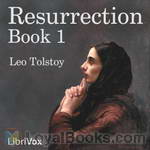 Resurrection
Resurrection
Book 1. Resurrection is the last of Tolstoy's major fiction works published in his lifetime. Tolstoy intended the novel as an exposition of injustice of man-made laws and the hypocrisy of institutionalized church. It was first published serially in the magazine Niva as an effort to raise funds for the resettlement of the Dukhobors. The story concerns a nobleman named Nekhlyudov, who seeks redemption for a sin committed years earlier. His brief affair with a maid resulted in her being fired and ending up in prostitution. The book treats his attempts to help her out of her current misery, but also focuses on his personal mental and moral struggle. | |
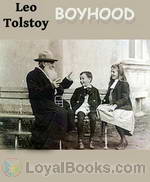 Boyhood
Boyhood
Boyhood is the second in Tolstoy's trilogy of three autobiographical novels, including Childhood and Youth, published in a literary journal during the 1850s. (Introduction by Bill Boerst) | |
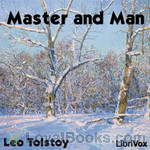 Master and Man
Master and Man
A land owner, Vasili Andreevich, takes along one of his peasants, Nikita, for a short journey to another town. He wishes to get to the town quickly ‘for business’. They find themselves in the middle of a blizzard, but the master in his avarice wishes to press on. They eventually get lost off the road and they try to camp. The master’s peasant soon finds himself about to die from hypothermia. The master leaves him on the horse to stubbornly try to find the road. When he returns, he attains a spiritual/moral revelation, and Tolstoy once again repeats one of his famous themes: that the only true happiness in life is found by living for others. (Wikipedia) | |
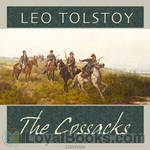 The Cossacks
The Cossacks
The Cossacks (1863) is an unfinished novel which describes the Cossack life and people through a story of Dmitri Olenin, a Russian aristocrat in love with a Cossack girl. This text was acclaimed by Ivan Bunin as one of the finest in the language. | |
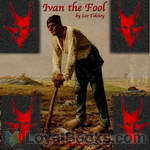 Ivan the Fool
Ivan the Fool
Written after Tolstoy suffered a spiritual crisis, Ivan the Fool is a fairy tale that offers children instruction in how to live rightly, simply, and generously. The story emphasizes the destructive aspects of materialism and militarism while idealizing manual labor and the peasant life. (Introduction by Dorlene Kaplan) | |
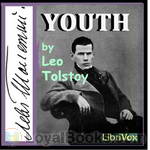 Youth
Youth
Youth is the third in Tolstoy's trilogy of three autobiographical novels, including Childhood and Boyhood, published in a literary journal during the 1850s. (Introduction by Bill Boerst) | |
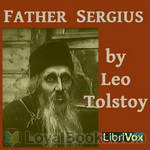 Father Sergius
Father Sergius
Prince Stepan Kasatsky experiences a disappointment with his fiancé and decides to become a monk! There is a story line, but beneath it, Father Sergius struggles to find peace and, if not happiness, then at least contentment. But he is always disillusioned and ultimately unsatisfied. Only in the end does he find his way by letting go of what he struggled to attain all his life, i.e. to be better than everyone else in whatever he did, and settle for the mundane. | |
 The Awakening (The Resurrection)
The Awakening (The Resurrection)
| |
 The Forged Coupon
The Forged Coupon
| |
 The Power of Darkness
The Power of Darkness
| |
 On the Significance of Science and Art
On the Significance of Science and Art
| |
 The Light Shines in Darkness
The Light Shines in Darkness
| |
 Fruits of Culture
Fruits of Culture
| |
 The Cause of it All
The Cause of it All
| |
 The Live Corpse
The Live Corpse
| |
 Plays Complete Edition, Including the Posthumous Plays
Plays Complete Edition, Including the Posthumous Plays
| |
 The First Distiller
The First Distiller
| |
By: Leonid Nikolayevich Andreyev (1871-1919) | |
|---|---|
 Man Who Found the Truth
Man Who Found the Truth
An old man, accused of having murdered his family as a young man, spends a lifetime in prison. With brilliant psychological insight so characteristic of Leonid Andreyev's work, we follow this man telling his story about his obsession with truth and lies and his religion of the iron grate, tinged with madness, and not necessarily reliable.. | |
By: Lida Myrtle Williams (1877-) | |
|---|---|
 How to Teach Phonics
How to Teach Phonics
| |
By: Lucian of Samosata (120—180) | |
|---|---|
 Trips to the Moon
Trips to the Moon
The endeavour of small Greek historians to add interest to their work by magnifying the exploits of their countrymen, and piling wonder upon wonder, Lucian first condemned in his Instructions for Writing History, and then caricatured in his True History, wherein is contained the account of a trip to the moon, a piece which must have been enjoyed by Rabelais, which suggested to Cyrano de Bergerac his Voyages to the Moon and to the Sun, and insensibly contributed, perhaps, directly or through Bergerac, to the conception of Gulliver’s Travels. The Icaro-Menippus Dialogue describes another trip to the moon, though its satire is more especially directed against the philosophers. | |
By: Lucius Apuleius (125?-180) | |
|---|---|
 The Golden Asse
The Golden Asse
| |
 The Apologia and Florida of Apuleius of Madaura
The Apologia and Florida of Apuleius of Madaura
| |
By: Maciej Kazimierz Sarbiewski (1595-1640) | |
|---|---|
 The Odes of Casimire, Translated by G. Hils
The Odes of Casimire, Translated by G. Hils
| |
By: Maksim Gorky (1868-1936) | |
|---|---|
 Mother
Mother
| |
 Creatures That Once Were Men
Creatures That Once Were Men
| |
 Through Russia
Through Russia
| |
 The Man Who Was Afraid
The Man Who Was Afraid
| |
 Creatures That Once Were Men
Creatures That Once Were Men
| |
By: Marcus Vitruvius Pollio (75 BC - c. 15 BC) | |
|---|---|
 Ten Books on Architecture
Ten Books on Architecture
On Architecture is a treatise on architecture written by the Roman architect Vitruvius and dedicated to his patron, the emperor Caesar Augustus as a guide for building projects. The work is one of the most important sources of modern knowledge of Roman building methods as well as the planning and design of structures, both large (aqueducts, buildings, baths, harbours) and small (machines, measuring devices, instruments). He is also the prime source of the famous story of Archimedes and his bath-time discovery. | |
By: Marmaduke Park | |
|---|---|
 Aesop, in Rhyme Old Friends in a New Dress
Aesop, in Rhyme Old Friends in a New Dress
| |
By: Martha Dickinson Bianchi (1866-1943) | |
|---|---|
 Russian Lyrics
Russian Lyrics
| |
By: Martí Joan de Galba (-1490) | |
|---|---|
 The White Knight: Tirant Lo Blanc
The White Knight: Tirant Lo Blanc
| |
By: Mary Owens Crowther | |
|---|---|
 How to Write Letters (Formerly The Book of Letters) A Complete Guide to Correct Business and Personal Correspondence
How to Write Letters (Formerly The Book of Letters) A Complete Guide to Correct Business and Personal Correspondence
| |
By: Matthew Arnold (1822-1888) | |
|---|---|
 Celtic Literature
Celtic Literature
| |
By: Michael Clarke (1844?-1916) | |
|---|---|
 Story of Aeneas
Story of Aeneas
| |
By: Mikhail Yurevich Lermontov (1814-1841) | |
|---|---|
 Hero of Our Time
Hero of Our Time
A Hero of Our Time is indeed a portrait, but not of one man. It is a portrait built up of all our generation's vices in full bloom. You will again tell me that a human being cannot be so wicked, and I will reply that if you can believe in the existence of all the villains of tragedy and romance, why wouldn't believe that there was a Pechorin? If you could admire far more terrifying and repulsive types, why aren't you more merciful to this character, even if it is fictitious? Isn't it because there's more truth in it than you might wish? | |
By: Morris Rosenfeld (1862-1923) | |
|---|---|
 Songs of Labor and Other Poems
Songs of Labor and Other Poems
| |
By: Mr. (John) Oldmixon (1673-1742) | |
|---|---|
 Reflections on Dr. Swift's Letter to Harley (1712) and The British Academy (1712)
Reflections on Dr. Swift's Letter to Harley (1712) and The British Academy (1712)
| |
By: N. A. (Napoléon-Antoine) Belcourt (1860-1932) | |
|---|---|
 Bilingualism Address delivered before the Quebec Canadian Club, at Quebec, Tuesday, March 28th, 1916
Bilingualism Address delivered before the Quebec Canadian Club, at Quebec, Tuesday, March 28th, 1916
| |
By: Nahum Slouschz (1872-1966) | |
|---|---|
 The Renascence of Hebrew Literature (1743-1885)
The Renascence of Hebrew Literature (1743-1885)
| |
By: Nathaniel Bright Emerson (1839-1915) | |
|---|---|
 Unwritten Literature of Hawaii The Sacred Songs of the Hula
Unwritten Literature of Hawaii The Sacred Songs of the Hula
| |
By: Nikolai Vasilievich Gogol | |
|---|---|
 Dead Souls
Dead Souls
Dead Souls by Nikolai Gogol, Russian writer, was first published in 1842, and is one of the most prominent works of 19th-century Russian literature. Gogol himself saw it as an “epic poem in prose”, and within the book as a “novel in verse”. Despite supposedly completing the trilogy’s second part, Gogol destroyed it shortly before his death. Although the novel ends in mid-sentence (like Sterne’s Sentimental Journey), it is usually regarded as complete in the extant form. In Russia before the emancipation of the serfs in 1861, landowners were entitled to own serfs to farm their land... | |
By: of Phlossa near Smyrna Bion | |
|---|---|
 Theocritus Bion and Moschus Rendered into English Prose
Theocritus Bion and Moschus Rendered into English Prose
| |
By: of Samosata Lucian (120-180) | |
|---|---|
 Works of Lucian of Samosata — Volume 01
Works of Lucian of Samosata — Volume 01
| |
By: Okakura Kakuzo (1863-1913) | |
|---|---|
 The Book of Tea
The Book of Tea
The Book of Tea was written by Okakura Kakuzo in the early 20th century. It was first published in 1906, and has since been republished many times. – In the book, Kakuzo introduces the term Teaism and how Tea has affected nearly every aspect of Japanese culture, thought, and life. The book is noted to be accessibile to Western audiences because though Kakuzo was born and raised Japanese, he was trained from a young age to speak English; and would speak it all his life, becoming proficient at communicating his thoughts in the Western Mind... | |
By: Oliver Optic (1822-1897) | |
|---|---|
 A Spelling-Book for Advanced Classes
A Spelling-Book for Advanced Classes
| |
By: Ontario. Ministry of Education | |
|---|---|
 Ontario Teachers' Manuals: Literature
Ontario Teachers' Manuals: Literature
| |
By: Otis Ashmore (1853-) | |
|---|---|
 A Manual of Pronunciation For Practical Use in Schools and Families
A Manual of Pronunciation For Practical Use in Schools and Families
| |
By: P. (Patrick) Power (1862-1951) | |
|---|---|
 The Life of St. Declan of Ardmore
The Life of St. Declan of Ardmore
| |
By: Padraic Colum (1881-1972) | |
|---|---|
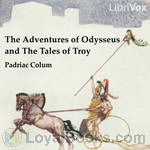 The Adventures of Odysseus and the Tale of Troy
The Adventures of Odysseus and the Tale of Troy
Also known as “The Children’s Homer,” this is Irish writer Padraic Colum’s retelling of the events of Homer’s Iliad and Odyssey for young people. Colum’s rich, evocative prose narrates the travails of Odysseus, King of Ithaca: his experiences fighting the Trojan War, and his ten years’ journey home to his faithful wife Penelope and his son Telemachus. | |